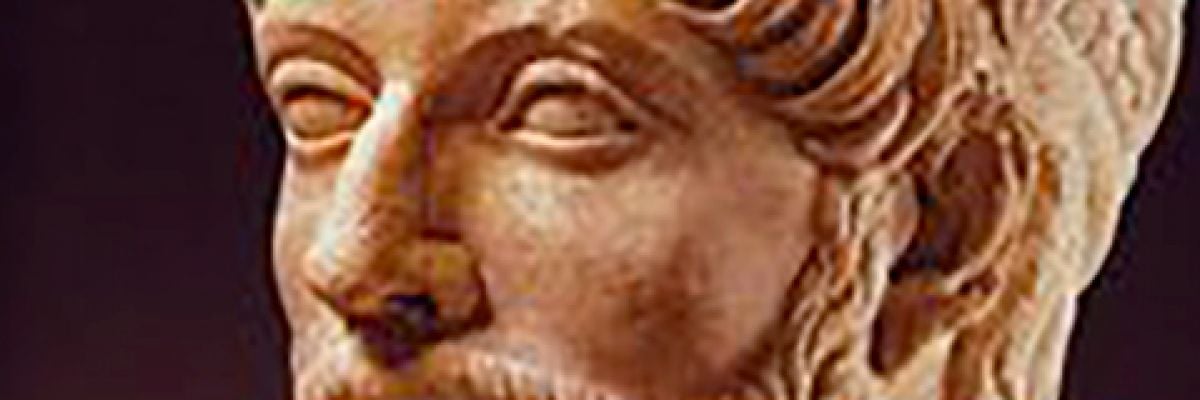
Catholics love conversion stories because it gives them the opportunity to look at the Church through the eyes of an outsider. Often these conversions stories highlight the significance of things about Catholicism that lifelong Catholics take for granted. Converts aren’t the only ones who reveal these things: sometimes the enemies of the Church also reveal supernatural aspects of the Church that cradle Catholics take for granted.
The apostate emperor Julian (A.D. 330-363) is a good example. He didn’t convert to Catholicism but rather abandoned his Catholic Faith for paganism and tried to undermine Christianity. But even he has a few lessons that he can teach us about ourselves and the genius of the Christian faith.
A hope to restore paganism
Julian was born to a Christian family. He was the son of Julius Constantius (d. 337), the half-brother of the emperor Constantine. At a young age, Julian narrowly escaped the slaughter of his kinsfolk in Constantinople, and he blamed Christianity for the horrible atrocity. He grew up under the tutelage of two men who taught him pagan philosophy and magic. After the death of Constantius II (317-361), Julian became emperor and embarked on a campaign against Christianity in hopes of restoring paganism.
His actions included the confiscation of Church land and prohibiting Christians from teaching rhetoric and grammar. He even attempted to rebuild the Temple in Jerusalem! But despite Julian’s best efforts to destroy the Church, he still needed to revitalize paganism, which if it wasn’t dead by the fourth century was hanging on by life support. Paganism needed to step up to the plate and win the hearts and minds of the people. But how? Julian’s answer was charity. Yes, you read that correctly: charity.
It may seem strange to us now, because the whole of Western society has been utterly transformed and permeated by Christianity to think that caring for the poor and loving our enemies is a natural part of being human. It’s true that many pagans practiced natural virtue, but it was light years away from where we are today. Nothing illustrates the point that true charity is the fruit of Christianity better than the historic enemies of the Church, especially Julian the Apostate.
To act more like Christians
Julian was well aware that Christians cared not only for their own members but also for all, regardless of their religious views. He thought that this odd behavior was really only a way to recruit more Christians. Indeed, he likened Christian charity to little bits of cake that pirates used to entice children onto their ships so that they could enslave them. What was Julian’s response?
He donned the mantle of Pontifex Maximus (the high priest) and began a program to change paganism to be more like Christianity.
In his Letter to Arsacius, the high priest of Galatia (A.D. 362), Julian admonishes Arsacius to coerce the pagan priests of the region to start acting more like Christians. He points out:
Observe how the kindness of Christians to strangers, their care for the burial of their dead, and the sobriety of their lifestyle has done the most to advance their cause? Each of these things, I think, ought really to be practiced by us. It is not sufficient for you alone to practice them, but so must all the priests in Galatia without exception.
If these pagan priests refused to reform their lives and stop engaging in immoral or unseemly ways, they were to be fired.
In the same letter Julian orders the high priest to “erect many hostels, one in each city, in order that strangers may enjoy my kindness, not only those of our own faith but also of others whosoever is in want of money. I have just been devising a plan by which you will be able to get supplies.”
Julian states that he has ordered that a large supply of grain and wine should be sent to Galatia to be distributed by the pagan priests to the poor, strangers, and beggars. “For it is disgraceful,” Julian says, “when no Jew is a beggar and the impious Galileans [Christians] support our poor in addition to their own; everyone is able to see that our coreligionists are in want of aid from us.”
Doomed from the start
What Julian didn’t realize was that his plan was doomed to failure from the start because it was artificial. There’s nothing in the pagan worldview to support caring for the poor. Outside of some general statements about showing kindness to strangers, caring for the poor really didn’t make sense. Pagan philosophy didn’t support the notion that all are equal before God.
Instead, humans were divided into classes. Some were destined to be rulers and others slaves. The poor were looked down upon as being inferior and debased. Caring for the poor was just throwing food and money away. The idea of love for the poor was foreign to the pagan mind. Even Julian’s program wasn’t motivated out of compassion for the poor—it was purely a pragmatic move.
For Christians, however, caring for the poor was more than feeling good by doing a good deed. It had supernatural value. God became man and give humanity a new dignity by identifying himself with us. None of the pagan gods did this. Christians were obliged to love one another as Christ loved us (see John 13:34), which was a self-sacrificial love not detached benevolence. Whatever is done to the least ones is done for Christ (see Matthew 25:40). Since true charity is the fruit and genius of Christianity, no governmental subsidies were needed. Christians gave the poor what they had.
Julian’s failed project reminds us how far we have come in the West. Christianity has transformed Western thinking so thoroughly that today many think that charity is a natural, spontaneous human reaction. Julian shows that for most of human history, it wasn’t. Without the Christian worldview to support it, charity will eventually be distorted. People will eventually realize that the good feeling they experience isn’t really that much better than enjoying for themselves the material goods they would otherwise have given away.
Something more is needed. Charity needs a worldview that supplies the imperative to love others, even our enemies, regardless of the costs. Charity needs Christianity.



